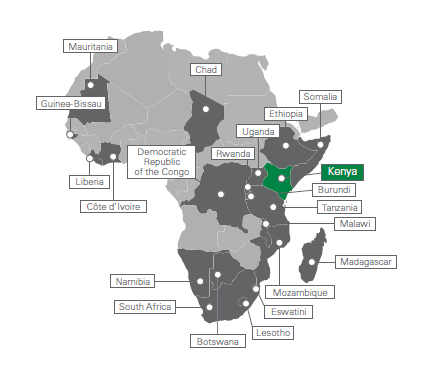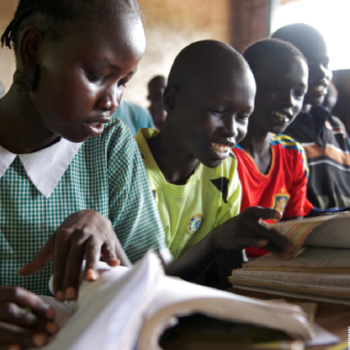In Kenya, the population is set to double to 85 million by 2050. Kenya is one of the most stable economies and is a business hub for East Africa, with an average GPD growth of 5 per cent per annum.
Kenya’s achievement of lower middle-income status in 2015, combined with a predominantly young population accounting for two thirds of its inhabitants, presents a unique opportunity to leverage the skills, resources and
capacities of millions of children and adolescents. With the right government policies, investment and strong technical support, Kenya’s children and adolescents can yield a ‘demographic dividend’ and contribute to a national
vision of prosperity.
Schools for Africa (SFA) is a global initiative which aims to achieve quality education across sub-Saharan Africa, ensuring that all children, including the most marginalized, are learning and gaining the skills for succeeding in life
and work. SFA convenes businesses, governments and individuals and has a proven track record in partnering with the private sector to achieve education results for children.
The Peter Krämer Foundation, partnering with the Government of Kenya and partners from the public and private sector, is strategically responding to the challenges and opportunities in Kenya. We have a long track record of implementing education programmes that result in real and sustainable change for children, such as: implementing curriculum reform that is competency based, reaching more than 2 million children in the first two grades of primary school, with roll-out to all grades (more than 10 million children) expected in the next five years; implementing model early learning centres to encourage early childhood development; providing technical support to the Ministry of Education that led to the enrolment of 151,559 out-of-school children (47 per cent girls) between the ages of 6 and 14 in primary schools; and facilitating access to quality education for 156,379 refugees and host community children (43 per cent girls), ages 4–18, affected by conflict and crisis.
Alongside UNICEF we will continue to provide a leadership role in the design, implementation and scaling up of successful education programmes nationally to further help the government in the implementation of its national development priorities for 2018–2022.


